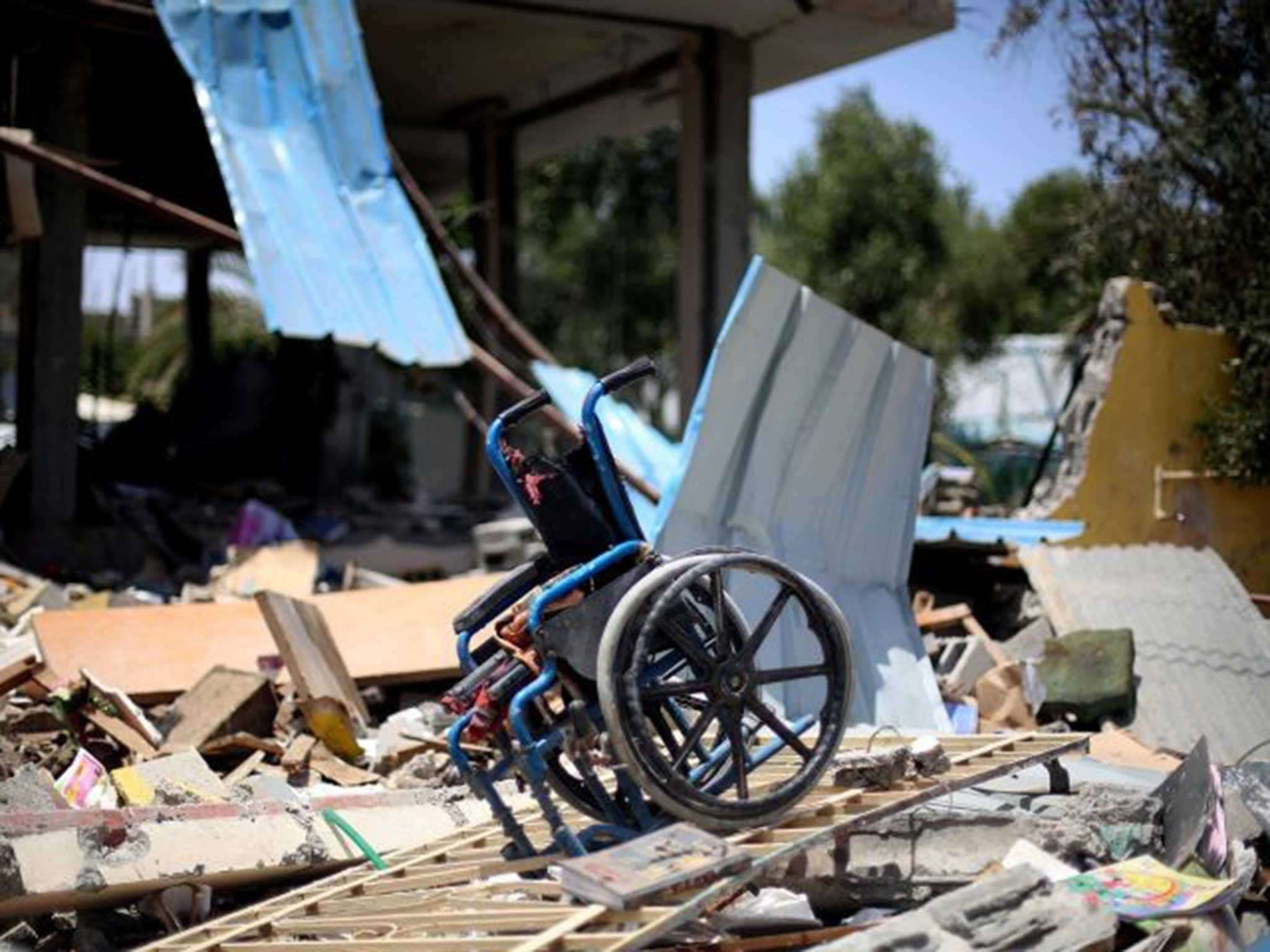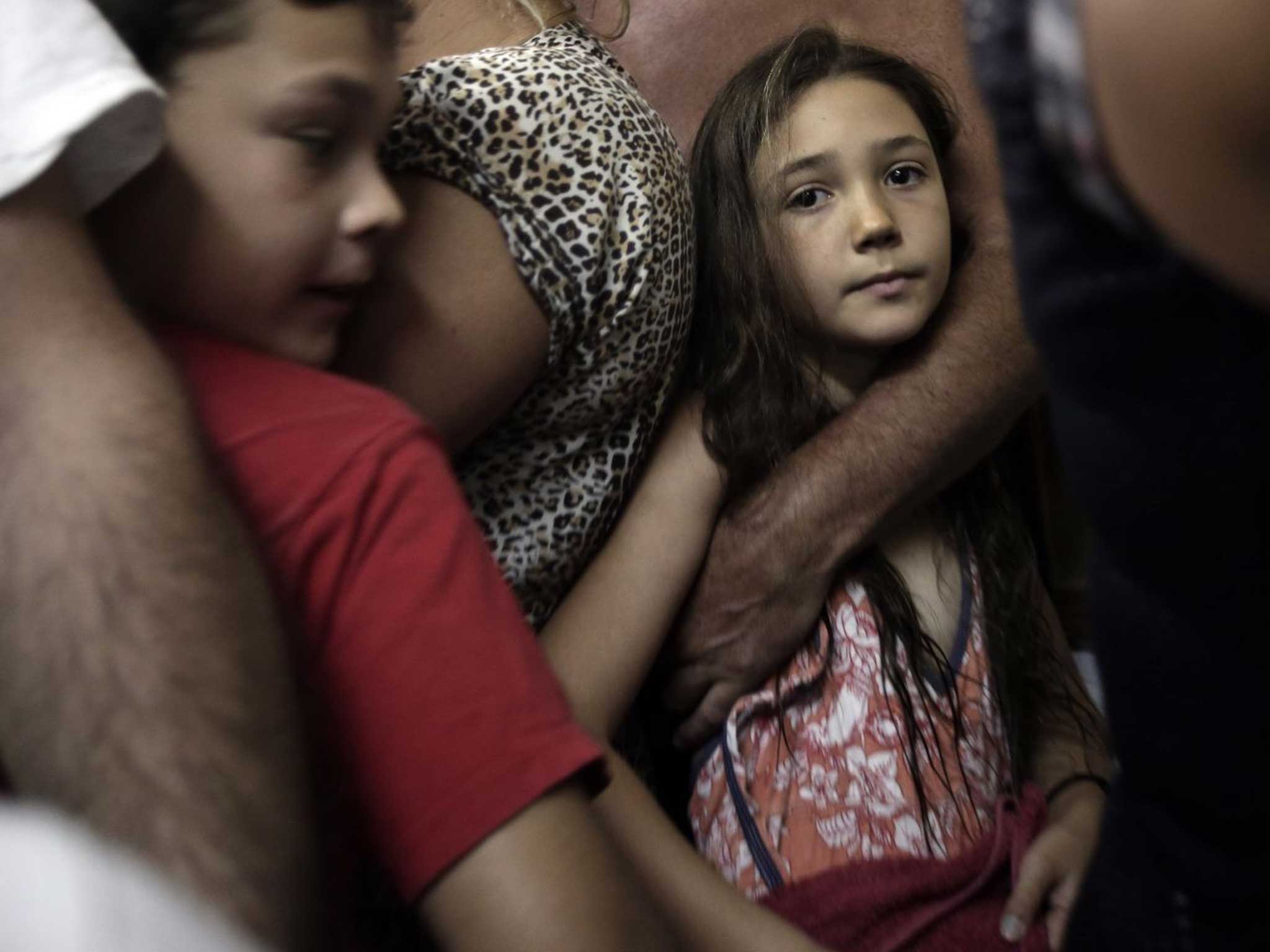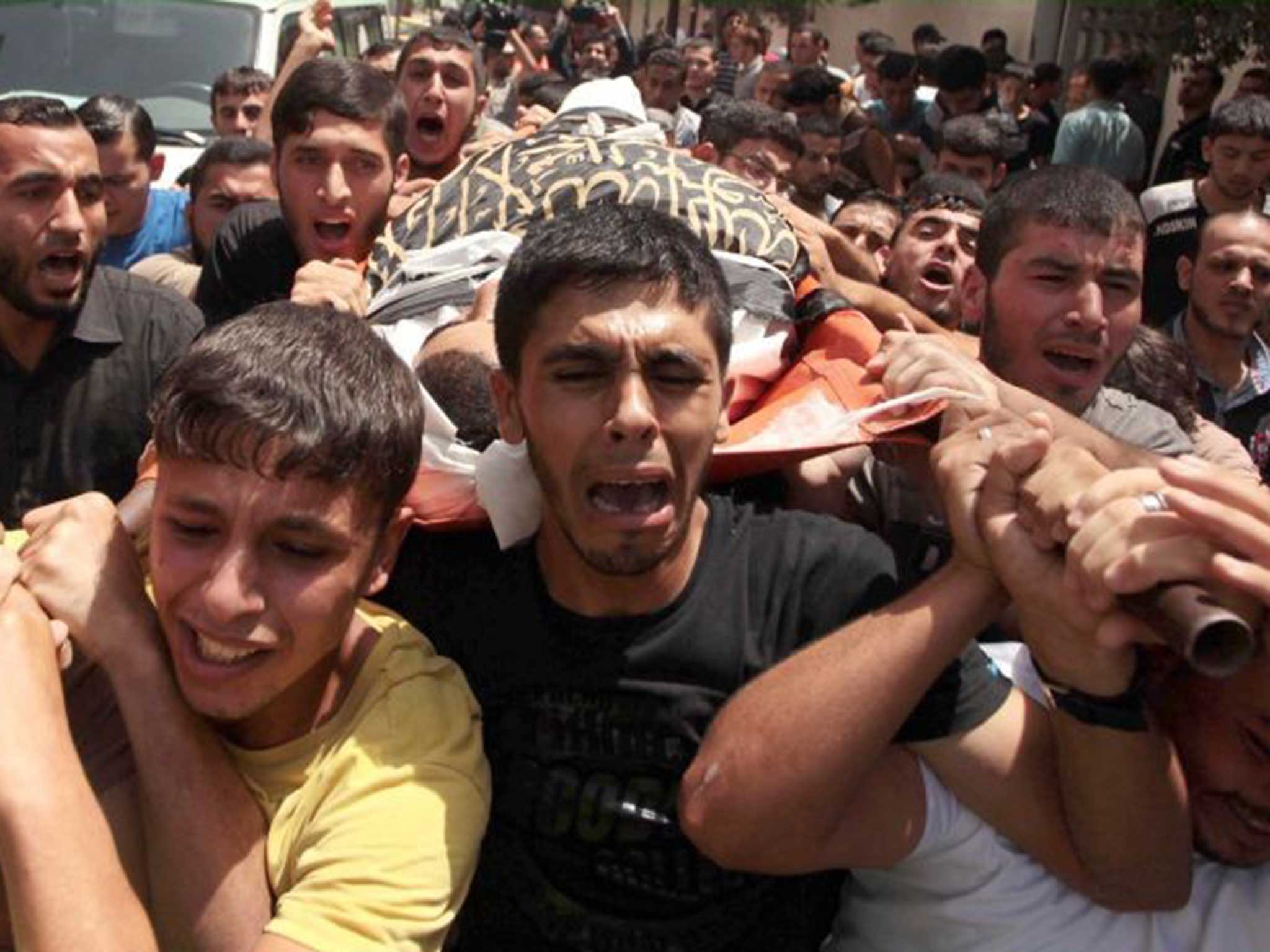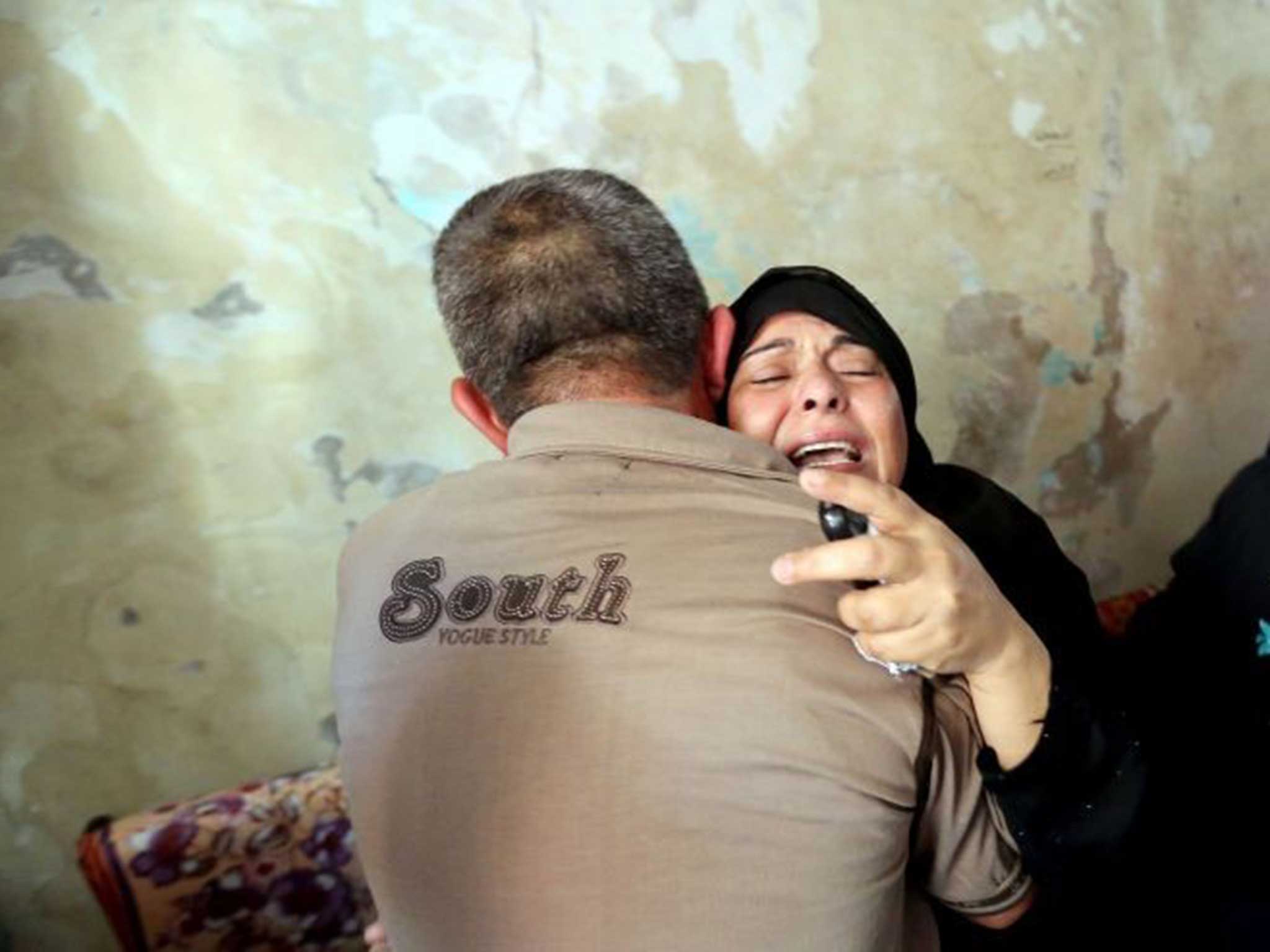Israel-Gaza conflict: Israeli air strike destroys home for the disabled killing two women residents
Attack also leaves four others horrifically injured from shrapnel and burns

Your support helps us to tell the story
From reproductive rights to climate change to Big Tech, The Independent is on the ground when the story is developing. Whether it's investigating the financials of Elon Musk's pro-Trump PAC or producing our latest documentary, 'The A Word', which shines a light on the American women fighting for reproductive rights, we know how important it is to parse out the facts from the messaging.
At such a critical moment in US history, we need reporters on the ground. Your donation allows us to keep sending journalists to speak to both sides of the story.
The Independent is trusted by Americans across the entire political spectrum. And unlike many other quality news outlets, we choose not to lock Americans out of our reporting and analysis with paywalls. We believe quality journalism should be available to everyone, paid for by those who can afford it.
Your support makes all the difference.The residents at Mobarat Felestin Centre had just finished suhoor, the early morning meal before a long day of fasting during Ramadan, when the first missile hit the roof. It may have been the standard warning issued by the Israeli military that a major attack was coming.
But the people inside did not know that. And, with all but one of them suffering from mental and physical disability, it is highly unlikely they would have been able to escape in any event. The ensuing air strike, five minutes later at around 4.30, demolished a large part of the structure, starting a fire, leaving two dead and four others horrifically injured from shrapnel and burns.
As the victims were carried out of the ruined building at Beit Lahia district through the charred debris, twisted metal and shards of glass, the mood was one of despondency and anger. One of the bodies was that of 42 year old Soha Abu Sada, one of her legs amputated by the blast; she was wrapped in a red and brown blanket and carried out by young men chanting Allah Hu Akhbar. A woman in a black chador, Abu Rashida, a distant relation, cried: “This is the fate of our people, even those who are already suffering must suffer a terrible death”.

The centre for the disabled had been in Gaza for 24 years, and survived the many episodes of strife in those years between the Israelis and the Palestinians. But the organisation moved to the present location three years ago and one neighbour stated that a member of the Islamic Jihad group and his family had also once lived in the building, although he was not sure about their current whereabouts.
This was firmly denied by those who ran Mobarat Felestin and, in the absence of an explanation from the Israelis, what has happened will raise fresh questions about the military operation by Benjamin Netanyahu's government coming in the wake of the extraordinarily high numbers of children among the casualties.
The human toll from Operation Protective Edge now stands, according to Palestinian officials, at 120 dead and around 925 injured. Both sides have vowed to carry on the conflict and there was no let-up in the violence, with rockets being fired into Israel and air strikes continuing on Gaza.
Among the targets hit by Israeli warplanes was the al-Farouq mosque which was left with just the minaret standing. Hamas threatened retribution and claimed the destruction of the holy place would galvanise support across the Muslim world. “The bombing shows how barbaric this enemy is and how much it is hostile to Islam”, declared Hasam Badran, a spokesman. “This terrorism gives us the right to broaden our response to the occupier.”

The Israeli government, however, has issued satellite photographs which, it stated, showed that the mosque, near the Nusseirat refugee camp, was being used to store rockets. It charged that Hamas and Islamic Jihad, another militant Palestinian group, “systematically use mosques to conceal weaponry and establish underground tunnel networks, abusing the holy nature of these sites for their own terror-oriented agenda.”
The ministry of defence in Tel Aviv announced that an inquiry would be held into the attack on the home for the disabled. But to Salwa Abu-Alkhorsan, lying on her bed at the Shifa Hospital in Gaza City, swathed in bandages, that meant nothing: “The Israelis know they can so anything they like. All I know is that I am in such pain, I did not know such pain existed. ”
The 53 year old helper at the centre had prepared the suhoor meal and was preparing to pray when she was sent flying by the explosion. “I could see fire all around me, and then I knew I was on fire, I started running to get out, but then I fell” she recounted.
“I have heard what happened to the others and I feel so sorry for them. They cannot look after themselves and to be caught up in this was so bad. None of us thought this would happen, I thought I was safer working there than anywhere else, I thought all the others were safer there than anywhere else.”
The number of casualties could have been more at Mobarat Felestin; twelve of the residents had gone home for the weekend, the five who stayed behind had no families to go to. The two dead were 30-year-old Ola Ushahi and Soha Abu Sada. The survivors, who all suffer from cerebral palsy, are seriously ill. Sally Saker, 18, has head and neck injuries and 18 per cent burns: Mai Hamada, 31, with a severe torso injury has 25 per cent burns and Ahmed Al-Awar, 26, with head and neck injuries, has 11 per cent burns.
Jamilla Alaiwa, a 59 year old social worker who had founded the home in 1990 was adamant that there were no paramilitary links: “We are not involved in politics and there is nothing there which justifies this action by the Israelis. We all know they don't need any reason to do things like this, they are a paranoid people.
“The building was rented, and tomorrow I will start looking for another place so that those who were safe in their family homes when this happened will have somewhere to come to. We will also have to find a way to look after those who are in hospital and survive.”

Raid Nawas, a plastic surgeon who is part of the care team for the injured from the Centre at Shifa, said: “We will have to wait for the next 24 hours to see if they make progress. At the moment it is a matter of keeping them alive: things like grafting and flapping for the burns is in the future. I was here when these patients were brought in. It was a shock that the Israelis bombed a place for handicapped people. I don't know why they did that, it is just insane.”
Dr Nawas, who had been on duty for 26 hours, was about to go home when a call came from his family. Their neighbourhood was getting heavily bombed and he was far safer staying in the hospital, they insisted. “Let's hope so”, shrugged the 27 year old medic, “who knows nowadays?”
Join our commenting forum
Join thought-provoking conversations, follow other Independent readers and see their replies
Comments